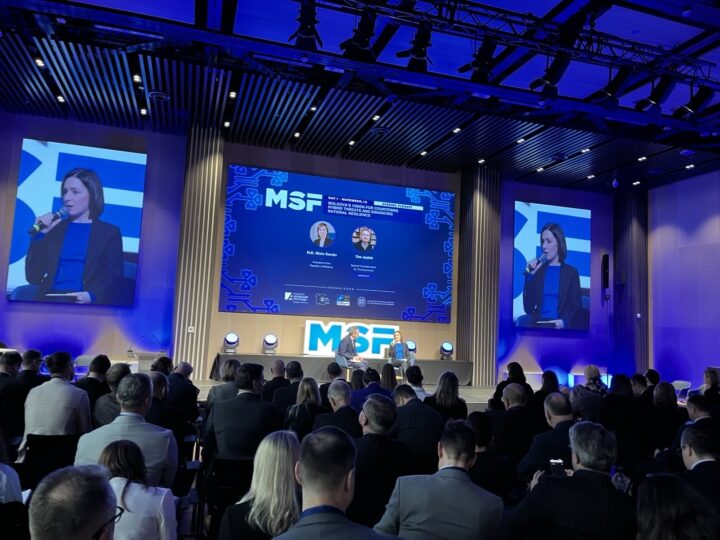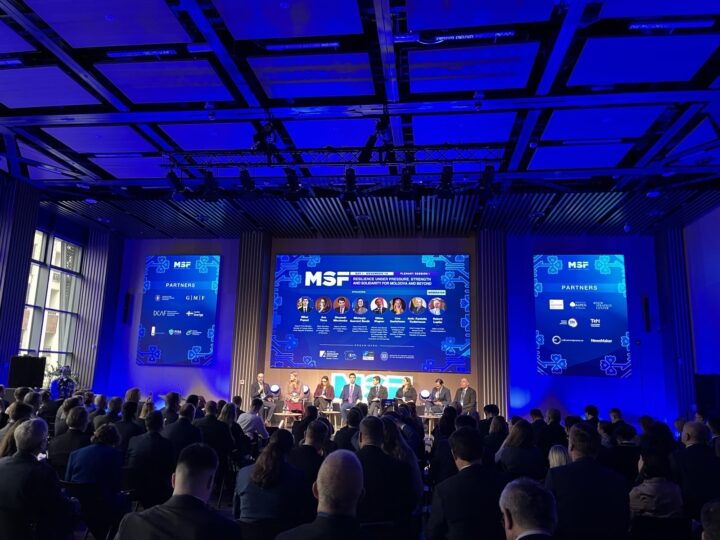27 November, 2025
Quick Impressions from The Moldova Security Forum 2025
By Jakob Hedenskog
The second edition of the Moldova Security Forum, held on 18–19 November 2025, was organised by the Konrad Adenauer Stiftung, the Institute for European Policy and Reforms, the NATO Liaison Office in the Republic of Moldova, and the Ministry of Foreign Affairs of the Republic of Moldova. The Forum brought together government officials, diplomats, representatives of EU and NATO institutions, leading think tanks, and civil society to discuss the growing complexity of hybrid threats targeting democratic resilience, electoral processes, and Moldova’s European integration path.

Photo: SCEEUS
During the Forum, Moldovan officials expressed confidence that the authorities, with the support of their international partners, had been far more successful in the 2025 parliamentary elections than in last year’s presidential election and constitutional referendum in resisting the Kremlin’s hybrid warfare. According to these officials, the Russian vote-buying schemes from last year had been substantially reduced, and Moldova had demonstrated much better preparedness against cyber threats.
Experts and participants at the Forum generally concluded that Moldova is taking security more seriously than ever before and that it is a stronger international partner today. They pointed to the updated National Security Strategy, approved in 2023, and the Military Strategy 2025–2035, approved in 2025, as evidence of this progress.
Democratic resilience in Moldova was described by participants as a whole-of-society effort. They explained that resilience is built in layers, with the first being the national layer (Stratcom Centre, national cyber defence infrastructure, etc.). The second is the European layer (European Peace Facility, EU Partnership Mission in Moldova, the Security and Defence Partnership between the EU and Moldova, as well as bilateral agreements with EU member states). The third is the Euro-Atlantic layer, which involves an extended circle of like-minded cooperation partners of Moldova.

Photo: SCEEUS
Some observations for the future, shared by Forum participants, included the need to constantly update and strengthen the legal framework. For example, previous laws on vote-buying had been drafted before the hybrid era, and Russia continues to seek loopholes in legislation. Another lesson highlighted by participants was that it is far cheaper to prevent incidents than to address them after they occur, as learned from the 2024 elections. Finally, the Forum emphasized the importance of maintaining strong cooperation with international partners.
